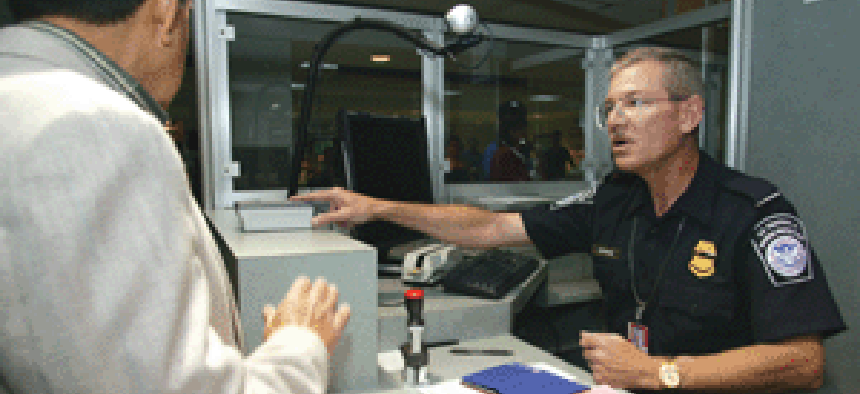Investigators see potential trouble at DHS programs

The Government Accountability Office and the DHS Inspector General are raising warning flags on several big-ticket IT projects at the Homeland Security Department.
The Government Accountability Office and the DHS Inspector General are raising warning flags on several big-ticket IT projects at the Homeland Security Department.The Coast Guard's $101 million Rescue 21 coastal communication system faces problems because it must build more than 300 towers along the nation's coasts, some of them in environmentally sensitive areas, Margaret Wrightson, GAO director of homeland security and justice issues, told Congress March 22.The Coast Guard must identify locations for the towers in accordance with the National Environmental Policy Act of 1969, which assesses the impact of such construction in coastal areas supporting migratory birds and other wildlife."The NEPA process represents the Rescue 21 program's greatest risk," Wrightson said in prepared testimony to the Senate Commerce, Science and Transportation's subcommittee on Fisheries and Coast Guard.She also criticized the Coast Guard's contracting for its $966 million Integrated Deepwater System, which will replace and modernize the agency's deteriorating aircraft and cutters. The approach has inherent risks that could raise costs and cause delays, Wrightson said.GAO last week also charged that the Transportation Security Administration has addressed fully only one of the 10 areas of congressional interest related to development of its Secure Flight airline passenger screening system. As a result, it is unclear whether the new system will be effective in determining which passengers should undergo additional security scrutiny, GAO said. As of March 15, the only requirement TSA has met is establishing an internal oversight board, GAO said.At Customs, the U.S. Visitor and Immigrant Status Indicator Technology program was criticized in a recent report by DHS Inspector General Richard Skinner because it lacks interoperable databases."The time-consuming process that the Customs and Border Protection officers must use to query multiple database systems to verify travelers' identities and identify potential criminals and terrorists is particularly problematic at land points of entry, because of the limited time available to conduct the queries," Skinner said in the report.Multiple databases need to be integrated so Customs and Border Protection officers can validate the identity of visitors trying to enter the United States, the inspector general's report said.


GAO says U.S. Visit needs better data sharing for the system to help border agents screen people entering the United States.
James Tourtellotte/U.S. Customs & Border Protection